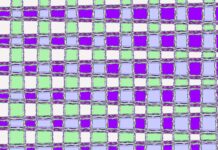Quantum Simulation has been a fascinating topic in the realm of quantum computing, as it allows us to study complex quantum systems and phenomena that are difficult or impossible to simulate on classical computers. By harnessing the power of quantum mechanics, researchers can create simulated environments that mimic the behavior of real-world systems, enabling them to explore new frontiers and gain deeper insights into the underlying physics. Quantum Simulation, in essence, is a way to recreate the quantum world on a smaller scale, allowing scientists to experiment and test theories in a controlled and precise manner. Quantum Simulation has far-reaching implications for various fields, including chemistry, materials science, and even quantum computing itself.
Quantum Simulation has the potential to revolutionize our understanding of complex quantum systems, such as those found in condensed matter physics and quantum field theory. By simulating these systems, researchers can gain valuable insights into their behavior and properties, which can lead to breakthroughs in fields such as superconductivity, superfluidity, and high-temperature superconductors. Quantum Simulation can also be used to study quantum many-body systems, which are difficult to analyze using classical methods due to their intricate interactions and complexity. In fact, Quantum Simulation has already led to significant advances in our understanding of quantum systems, such as the discovery of exotic phases of matter and novel quantum phases.
The concept of Quantum Simulation is rooted in the principles of quantum mechanics, which describe the behavior of particles at the atomic and subatomic level. In classical computing, complex systems are typically modeled using numerical methods, such as Monte Carlo simulations or finite element methods. However, these methods become increasingly inaccurate and computationally intensive as the system size increases. In contrast, Quantum Simulation leverages the unique properties of quantum mechanics, such as entanglement and superposition, to create a simulated environment that mirrors the behavior of real-world systems. This approach enables researchers to study complex quantum systems with unprecedented precision and accuracy.
One of the most promising applications of Quantum Simulation is in the field of chemistry. Molecular dynamics simulations are crucial for understanding chemical reactions and processes, but classical methods often fail to accurately predict the behavior of molecules due to their complexity. Quantum Simulation can overcome this limitation by simulating the behavior of molecules using quantum mechanics, allowing researchers to study chemical reactions and processes with unprecedented precision. This has significant implications for fields such as pharmaceutical research, materials science, and energy production.
Another area where Quantum Simulation is expected to make a significant impact is in materials science. Researchers are interested in understanding the behavior of materials at the atomic level, as this can lead to the development of new materials with unique properties. However, classical methods are often unable to capture the intricate details of material behavior at the atomic scale. Quantum Simulation can provide a more accurate picture of material behavior by simulating the interactions between atoms and electrons within a material. This can lead to breakthroughs in fields such as superconductivity, nanotechnology, and advanced materials.
In addition to its applications in chemistry and materials science, Quantum Simulation also has significant implications for quantum computing itself. The development of reliable and efficient quantum algorithms for Quantum Simulation is an active area of research, with potential applications in fields such as cryptography and optimization problems. Quantum Simulation can also be used to study the behavior of complex quantum systems, which can inform the development of more robust quantum computing architectures.
The development of Quantum Simulation requires significant advances in both theoretical understanding and experimental techniques. Researchers are working on developing new algorithms and protocols for simulating complex quantum systems using existing hardware platforms. They are also exploring novel experimental approaches that can simulate complex systems using cutting-edge technologies such as trapped ions or ultracold atoms.
The potential impact of Quantum Simulation on various industries is vast and varied. For instance, in the field of chemistry, Quantum Simulation can be used to design new molecules with specific properties, such as high-temperature superconductors or new catalysts. This can revolutionize industries such as energy production, chemicals manufacturing, and pharmaceuticals.
In the field of materials science, Quantum Simulation can be used to design new materials with unique properties, such as superconductors, nanomaterials, or metamaterials. This can lead to breakthroughs in fields such as energy storage, electronics, and aerospace engineering.
In the field of quantum computing itself, Quantum Simulation can be used to simulate complex quantum systems, such as many-body localized systems or topological insulators. This can help researchers develop new quantum algorithms and improve the accuracy of quantum simulations.
The potential applications of Quantum Simulation are not limited to scientific research alone. It can also have significant implications for industry and commerce. For example, in the field of finance, Quantum Simulation can be used to simulate complex financial systems and predict market trends with unprecedented accuracy. This can lead to more informed investment decisions and reduced risk.
In the field of logistics and supply chain management, Quantum Simulation can be used to optimize routes and schedules for delivery trucks and trains. This can reduce costs and increase efficiency in industries such as transportation and retail.
Quantum Simulation is also expected to have significant implications for education and training. By allowing students to simulate complex quantum systems and phenomena, it can provide a more immersive and interactive learning experience. This can lead to a deeper understanding of quantum mechanics and its applications.
In addition to its many practical applications, Quantum Simulation also has significant philosophical implications. By simulating complex quantum systems, we may gain a deeper understanding of the fundamental nature of reality itself. This could lead to new insights into the nature of space and time, the behavior of matter and energy, and the limits of human knowledge.
The development of Quantum Simulation requires significant advances in both theoretical understanding and experimental techniques. Researchers are working on developing new algorithms and protocols for simulating complex quantum systems using existing hardware platforms. They are also exploring novel experimental approaches that can simulate complex systems using cutting-edge technologies such as trapped ions or ultracold atoms.
One of the most promising areas of research in Quantum Simulation is the development of topological quantum computers. These computers use exotic materials known as topological insulators to protect quantum information from decoherence and errors. This could enable the development of more robust and scalable quantum computers that can perform complex calculations with unprecedented accuracy.
Another area of research is the development of analog quantum simulations using ultracold atoms or trapped ions. These systems can be used to simulate complex quantum systems with high accuracy and precision. Researchers are exploring ways to scale up these systems to larger numbers of particles and improve their control over the simulation parameters.
The future prospects for Quantum Simulation look bright, with many challenges still ahead but also many opportunities for breakthroughs. As research continues to advance in this field, we can expect new discoveries that will transform our understanding of quantum mechanics and its applications.
In addition to its many scientific benefits, Quantum Simulation also holds significant promise for industrial applications. For example, simulations could be used to design new materials with specific properties or optimize chemical reactions for improved efficiency. This could have significant economic benefits for industries such as energy production or pharmaceutical manufacturing.
Quantum Simulation has already shown great promise in its early stages, with many exciting developments on the horizon. As research continues to advance in this field, we can expect significant breakthroughs that will change our understanding of complex quantum systems forever.
In conclusion, Quantum Simulation is a rapidly evolving field that has far-reaching implications for various disciplines. By leveraging the power of quantum mechanics, researchers can study complex systems that are difficult or impossible to simulate using classical methods. The potential applications of Quantum Simulation are vast, ranging from chemistry and materials science to quantum computing itself. As researchers continue to push the boundaries of what is possible with Quantum Simulation, we can expect significant breakthroughs in our understanding of complex quantum systems.
The future prospects for Quantum Simulation look bright, with many challenges still ahead but also many opportunities for breakthroughs. As research continues to advance in this field, we can expect new discoveries that will transform our understanding of quantum mechanics and its applications. The potential impact on various disciplines will be profound, with new insights into complex systems that will drive innovation and progress.

















